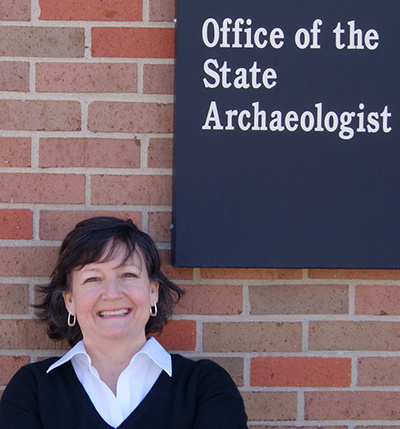As systems administration director for the Office of the State Archaeologist (OSA), Mary De La Garza works to develop technological portals for archaeological researchers across the Midwest and manages the office's ever-growing amount of research data.
But she recently came to terms with the fact that the massive amount of data—which includes locations and descriptions of thousands of archaeological sites throughout the state—was sitting on an aging server with a single point of failure. It was time to either invest in a new server, which is costly, or reach out to her IT colleagues on campus to find a central storage option.
"This will save us money in the long run."
— Mary De La Garza, Office of the State Archaeologist

The OSA opted to migrate its data to the central Large Scale Storage (LSS) service in summer 2015. And, with confidence that the data is safe and on solid equipment, De La Garza is able to rest a bit easier. She's also excited that her unit is saving money, and that time she spent on data management can be shifted to her other duties—like developing specialized applications for archaeological research.
Electronic File Storage is one of the 16 OneIT@Iowa projects. It aims to address service gaps, accommodate greater demand for storage, and make storage more affordable by migrating files and relevant data from duplicative services to the central service.
A OneIT project team comprising technology professionals from various campus units reassessed the Large Scale Storage service for both research and business users across campus. Thanks to advances in storage technology, they were able to decrease the cost of large-scale storage from $60 per terabyte per year to $40 per terabyte per year. The service also offers 30-day online self-restore backup snapshots, file replication, and off-campus access to files.
"This will save us money in the long run, and we're happy about that," De La Garza says, adding that the department could have spent as much as $27,000 for a new server, in addition to spending time and money replacing parts and backing up files.
As part of moving the office's 18 terabytes of data to a central system a few months ago, De La Garza handed off server-management responsibilities to Information Technology Services staff who work on the central service. She has been pleased with their responsiveness and is glad to have more time to focus on her other work.
"One key aspect of this project is to listen carefully to the users of storage services so we can create or adjust our offerings to meet their needs," says ITS Senior Support Consultant Laurie Hafner Dahms, who co-leads the OneIT storage project team with Mark Wilson, director of research computing at IIHR, a hydroscience research unit in the College of Engineering.
"When we succeed in meeting each unit's needs for general technology services, IT professionals can more easily focus on the specific work in their area—the specialized work they were hired to do," says Hafner Dahms.
Read about more TIER success stories.
UI Health Care is fully committed to the TIER philosophy of continuously identifying and implementing operational efficiencies, especially those that improve quality of care and patient safety. UI Health Care has been actively engaged in ongoing improvements in its operational and financial performance for more than eight years.